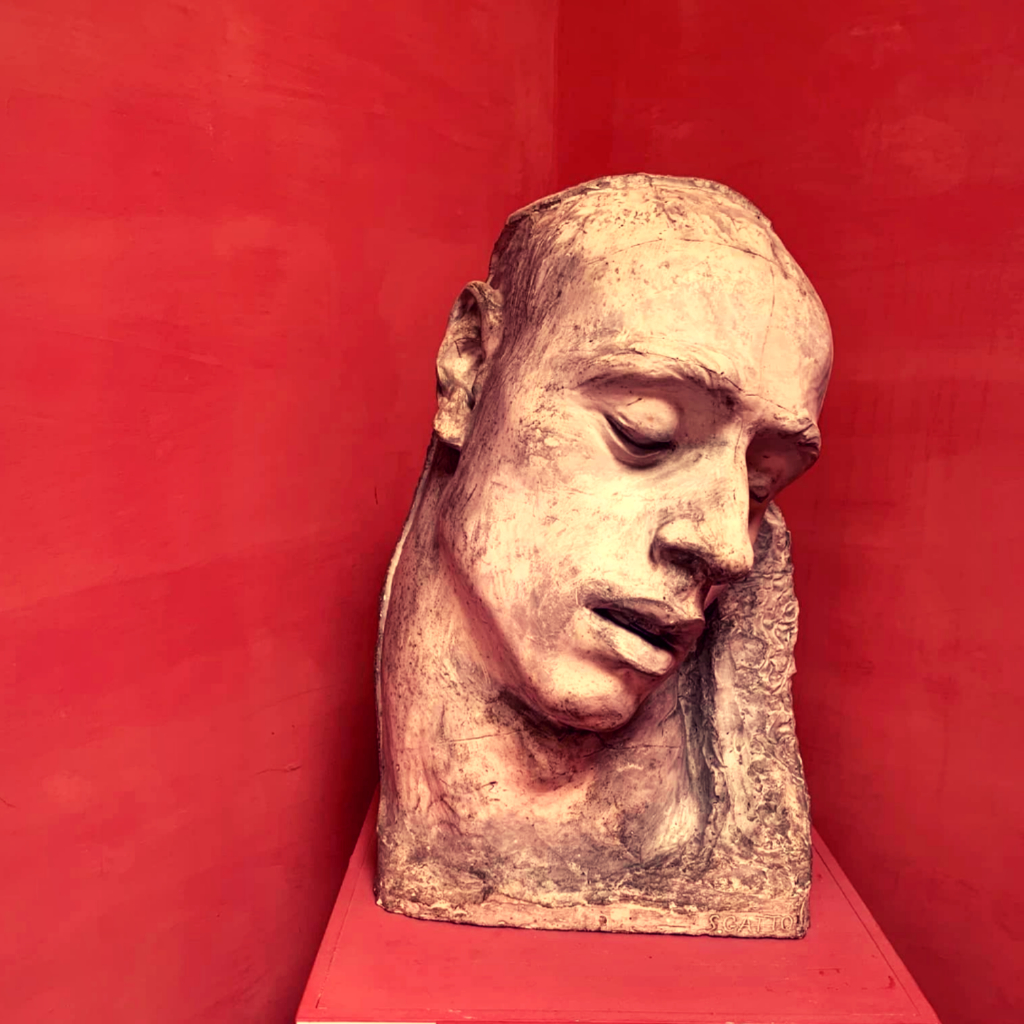It’s nice to sympathize with the heroes of some essays: Furtwängler is more difficult, although he is one of the best conductors of the 20th century. He never left Nazi Germany, and he continued to give concerts. He even noticed: “I was young, and no one saw a threat on my part… And when they noticed, it was too late”. The ultimate contradiction is that this music from an inhuman time has a desperate humanity — an emotional recklessness and nakedness. No one registered such a contradiction at the time.
The German conductor Wilhelm Furtwängler is a tall, stubborn man with the air of a distracted philosopher who headed the Berlin Philharmonic from 1922 to 1945, and again from 1952 until his death in 1954.
Even as a child, he chose Beethoven, his greatest love, which he carried through his life: Furtwängler became the best «Beethoven» conductor of the XX century. The great Maria Callas said that for her, Furtwängler is Beethoven. By the age of 11, he was playing almost all of Beethoven’s sonatas. The boy carefully performs solfeggio and composition, starting a little bit and composing himself.
At twenty, he will perform his first concert as a conductor. Opening it, of course, by Beethoven, the next number is Largo C minor, his own composition, and in the final is Brookner’s Ninth Symphony. It is paradoxical that Beethoven was enthusiastically received, but Furtwängler’s work was barely noticed, but Bruckner was praised for the difficult. Furtwängler opened Brookner to the big public. Despite his relative failure, he did not stop composing music, although he considered himself primarily a conductor.
Furtwängler and his musicians were working “as if there were no tomorrow,” Taruskin writes, in discussing the last item in the set — the final movement of Brahms’s First Symphony, recorded amid the inferno of January, 1945. “The music builds unbearable tension, abjures all ‘Brahmsian’ restraint or relaxation, and its raging subjectivity hits dumbfounding extravagances of tempo at both ends of the scale. . . . The bloodiest of all wars brought the foremost classical musician in the country with the most distinguished tradition of classical music to the pinnacle of his career, setting a standard neither he nor any other symphonic conductor was ever moved to duplicate.”
Furtwängler of early years was a thoughtful young man, tall and quiet, as if not from the world. You can see the talent right away. In his own way, he is fortunate – the golden age of German culture, which lasted from the beginning of the 20th century until 1933, coincides with his youth and coming of maturity. He absorbs into himself the best that comes out of this time, while remaining himself and gradually turning from a promising young man into a virtuoso with a unique manner…
He absorbs into himself the best that comes out of that time, while remaining himself and gradually turning from a promising young man into a virtuoso with a unique conduct. Furtwängler became the fourth leader of the Berlin Philharmonic Orchestra, taking this post immediately after Arthur Nikisch, who in turn inherited it from Hans von Bülow. Each of them perfected the orchestra’s performance, adding something to it. The musicians adored Furtwängler, although he conducted against the rules, allowing them to play naturally. Many years later, his orchestras were asked how they managed to understand their conductor, and they replied that you just start playing when you can’t stop playing.
He brings an astonishing demonic energy to the final movements of the Beethoven Seventh and the Schubert Ninth. The most striking is Furtwängler’s willingness — and his musicians’ willingness — to sacrifice precision for the sake of passion. The conductor had a famously wobbly, hard-to-read beat, which inspired many jokes. At rehearsals his favorite was «once again». Endlessly repeating a musical phrase, he achieved, on an intuitive level, a complete perfection, a deep understanding of music. That’s why he could afford things that other conductors couldn’t even dream of – like changing the pace of the work.
Furtwängler was immersed in musical matter with his head, as he worked, resembling a force whose laws anyone was forced to obey. «The most unpleasant kind of conductor is the one that stands next to the music and does not dive into it», he said. He himself, without residue, immersed himself in the Universe under the name «Beethoven» or «Brahms». Or – «Wagner».
In 1925, Furtwängler toured the United States. Success is stunning. He conducted Brahms’ First Symphony, prompting a barrage of excitement and worship for a new European genius. However, his American contract, which ended in 1927, was never renewed…
…The story of Wilhelm Furtwängler is the story of Dr Faust, who was forced to make a deal with the devil. The artist is influenced by everything – otherwise he is threatened with moral, and behind him professional degradation. With Furtwängler, something paradoxical happened: oddly enough, until the last days, he was still a Musician, an authentic one. It is interesting that saved him from caricature on himself is his belonging to German culture, and in the best manifestations: the thoroughness, professionalism, punctuality, absolute devotion to music.


